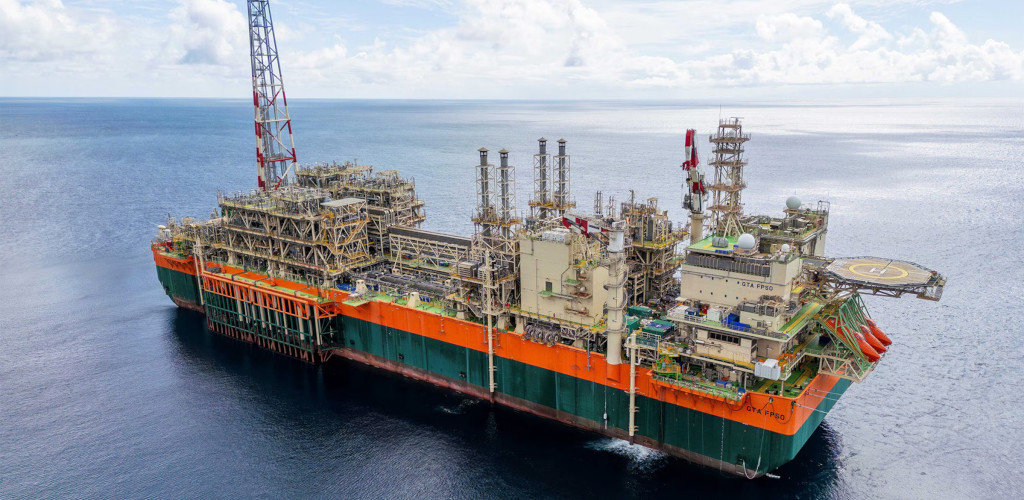Buildout of GTA Phase 1 Has Called for Major Project Logistics Support

By Simon West
BP has announced the imminent start-up of the Greater Tortue Ahmeyim (GTA) Phase 1 liquified natural gas (LNG) project off the coast of West Africa, a project billed as one of the energy major’s largest-ever.
A giant floating production, storage and offloading vessel (FPSO) has already arrived at its final location in deep waters some 40 kilometers offshore on the maritime border of Senegal and Mauritania and is being readied to start processing gas.
More than 81,000 tonnes of steel, 37,000 meters of pipe stools and 1.52 million meters of cable were used to build the FPSO, which was shipped to the GTA site from the COSCO Qidong Shipyard in China – a journey of more than 12,000 nautical miles.
GTA Phase 1 is expected to produce up to 3.2 million tonnes of LNG per year for the next two decades and will be operated by BP on behalf of partners Kosmos Energy, PETROSEN and SMH.
The project is one of dozens of oil and gas developments propelling Africa's energy sector forward at an accelerating pace.
“It’s a massive civil engineering project, two massive shipbuilding projects, and a massive pipeline project all in one – and they all need to be safely and flawlessly integrated,” said Alan Edwards, project general manager for GTA Subsea.
Buildout has demanded significant project logistics support.
Subsea pipelines and infrastructure – the deepest in Africa – have been installed and will feed into the FPSO, which will process more than 500 million cubic feet of gas per day from wells located 2,800 meters underwater – three times the height of Dubai’s Burj Khalifa, BP said.
The FPSO, which will house up to 140 workers during full operations, will then remove water, condensate and impurities before the gas is transferred by another pipeline to a floating liquefied natural gas vessel (FLNG) moored some 10 kilometers offshore.
 At the FLNG vessel, the gas will be cryogenically cooled, liquefied and stored before being transferred to LNG carriers for export, with some output allocated to help meet growing demand in the host countries of Senegal and Mauritania.
At the FLNG vessel, the gas will be cryogenically cooled, liquefied and stored before being transferred to LNG carriers for export, with some output allocated to help meet growing demand in the host countries of Senegal and Mauritania.
“The scale of the technology and engineering required for this project was in a league of its own. The FPSO alone came with a set of unique challenges – from transporting it to the Atlantic from China, to battling damaging typhoons,” said Anil Senol, project general manager tasked with the transportation and installation of the FPSO.
BP has focused on local workforce development to support the project’s buildout and has created a national technician training program with nearly 50 participants taking part.
Local and regional suppliers have been used where possible, it said.
“Technicians on our training program have had the opportunity to work at BP operating assets in Azerbaijan, Oman, Trinidad and Indonesia, so they can gain the operating experience needed to succeed at GTA,” said Rebecca King, vice president of production for Mauritania and Senegal. “The goal is for them to become the core of the team who will operate and maintain the GTA assets for years to come.”
BP is a member of the Breakbulk Global Shipper Network, an extensive networking platform for executives operating at the top end of the project supply chain. The next in-person meet-up for BGSN members will be at Breakbulk Americas 2024 on 15-17 October in Houston.
PHOTO CREDIT: BP
